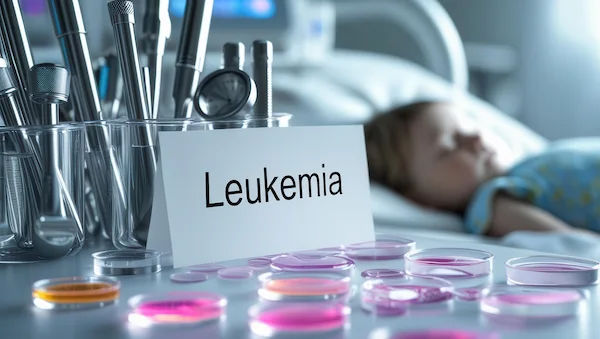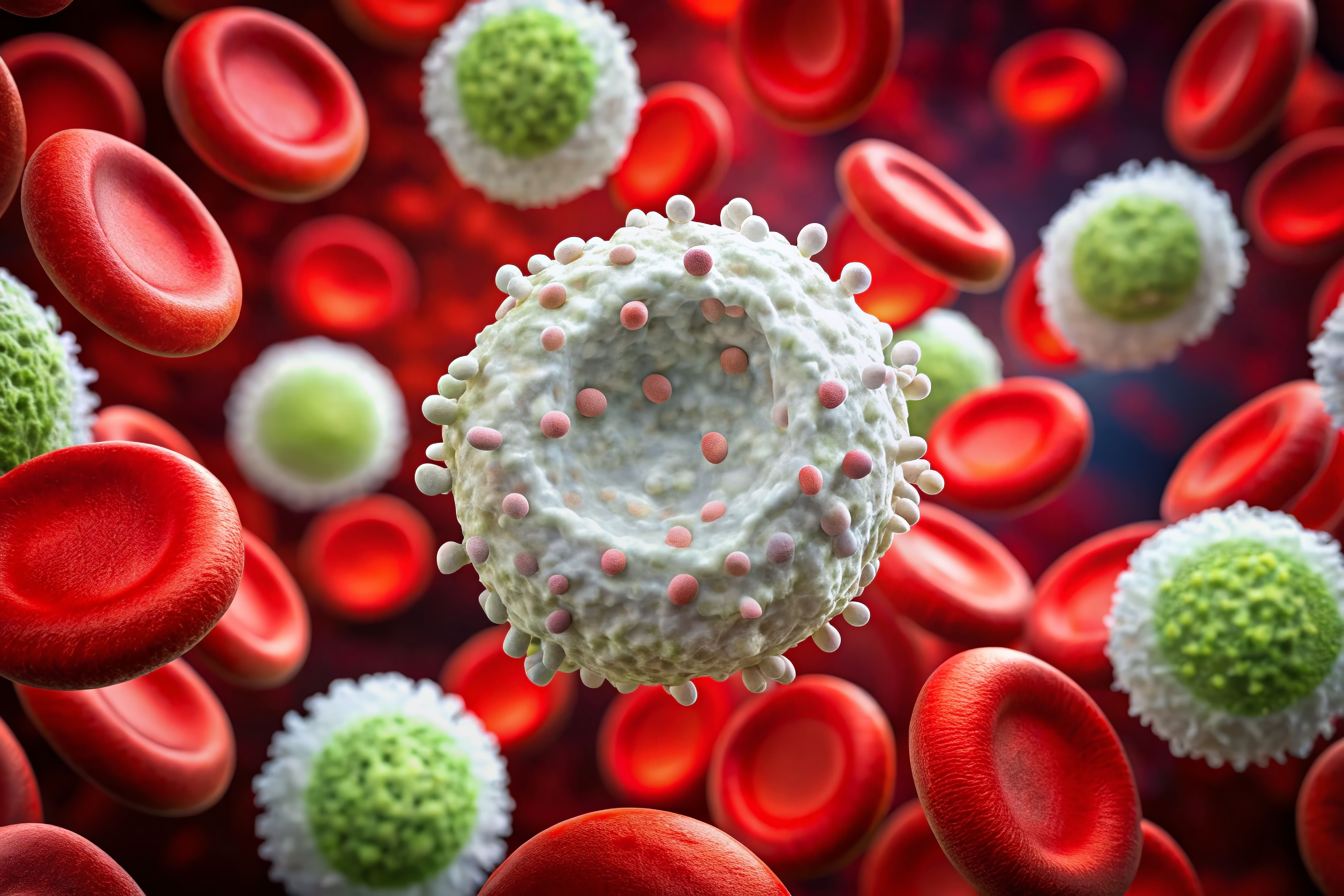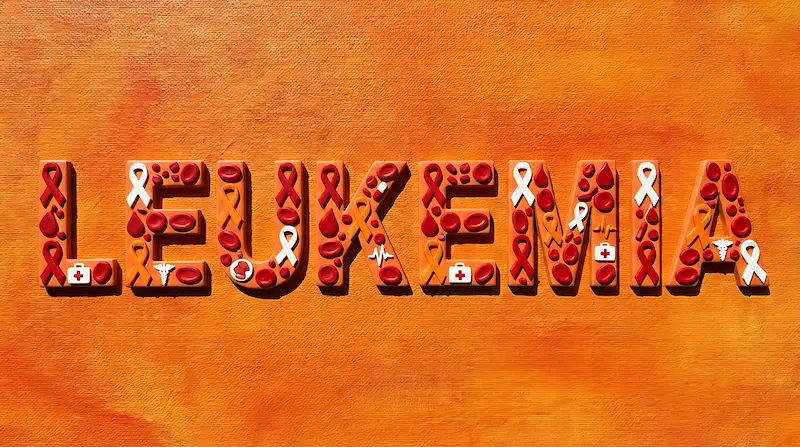Your Guide to Leukemia Treatment Options: What You Need to Know
Exploring leukemia treatment options? Learn about chemotherapy, radiation, stem cell transplants, targeted therapy, and immunotherapy. Understand how age, type, and stage of leukemia influence treatment decisions.

Written by Dr. D Bhanu Prakash
Reviewed by Dr. Rohinipriyanka Pondugula MBBS
Last updated on 13th Jan, 2026
.webp?tr=q-80,f-webp,w-350,dpr-2,c-at_max 700w)
Receiving a leukemia diagnosis can feel overwhelming, and it's natural to want clear, understandable information about the path ahead. The world of cancer treatment is complex, but understanding your leukemia treatment options is the first powerful step toward actively participating in your care. This guide is designed to demystify the process, breaking down the standard therapies, cutting-edge advancements, and key factors that influence treatment decisions. Whether you're a patient or a supportive loved one, our goal is to empower you with knowledge, from chemotherapy and radiation to revolutionary immunotherapies and the critical questions to ask your medical team. Let's navigate this journey together.
Understanding Leukemia: The First Step to Choosing Treatment
Before diving into treatments, it's crucial to understand what you're treating. Leukemia is a broad term for cancers of the blood-forming tissues, including the bone marrow and lymphatic system. It typically involves the rapid production of abnormal white blood cells, which crowd out healthy cells, impairing their ability to fight infection and carry oxygen.
The specific type of leukemia you have is the single most important factor in determining your treatment plan. They are categorized by their speed of progression (acute or chronic) and the type of white blood cell affected (lymphocytic or myeloid).
The Four Main Types of Leukemia
Acute Lymphocytic Leukemia (ALL)
This is an aggressive, fast-growing cancer of the lymphoid cells (lymphoblasts). It is the most common type of leukemia in young children, though it can also occur in adults. Treatment for ALL typically requires intensive, multi-phase chemotherapy.
Acute Myeloid Leukemia (AML)
AML is a rapidly progressing cancer of the myeloid line of blood cells, leading to the buildup of immature "blasts" in the bone marrow and blood. It occurs in both adults and children. Treatment decisions are highly dependent on genetic mutations within the cancer cells.
Chronic Lymphocytic Leukemia (CLL)
CLL is a typically slower-growing cancer of the lymphoid cells that primarily affects older adults. Many patients with early-stage CLL don't require immediate treatment and are instead placed on "watchful waiting." When treatment is needed, it often involves targeted therapy for chronic myeloid leukemia and other blood cancers, which has revolutionized outcomes.
Chronic Myeloid Leukemia (CML)
CML is characterized by the presence of the Philadelphia chromosome, a specific genetic abnormality. It progresses more slowly but can accelerate. The development of tyrosine kinase inhibitors (TKIs), a form of targeted therapy, has turned CML into a manageable chronic condition for many patients.
Consult a Specialist for Personalised Advice
Standard Leukemia Treatment Options
These are the time-tested, foundational treatments that have formed the backbone of leukemia care for decades.
Chemotherapy: The Foundation of Treatment
Chemotherapy uses powerful drugs to kill fast-growing cancer cells or stop them from dividing. It's often given in cycles, with rest periods to allow the body to recover. It can be administered intravenously (IV), orally, or via injection into the cerebrospinal fluid (intrathecal chemotherapy) to treat or prevent central nervous system involvement. The specific drugs and regimen depend entirely on the leukemia type and phase. If you experience severe side effects from chemotherapy that are not managed by initial recommendations, it is crucial to consult your oncologist. For ongoing support, you can also consult a doctor online with Apollo24|7 to discuss symptom management strategies.
Radiation Therapy: Targeting Cancer Cells Precisely
Radiation therapy uses high-energy beams, like X-rays or protons, to damage and destroy leukemia cells. It is highly targeted to a specific area. It's most commonly used in leukemia to prepare the body for a stem cell transplant by wiping out the bone marrow or to treat cancer that has spread to other parts of the body, like the brain or spleen.
Stem Cell Transplant (Bone Marrow Transplant): A Chance for a New Beginning
A stem cell transplant allows doctors to use very high doses of chemotherapy or radiation to eradicate leukemia in the bone marrow. This process also destroys the patient's healthy blood-forming stem cells. These are then replaced with infused healthy stem cells from a donor (allogeneic transplant) or from the patient themselves before the high-dose treatment (autologous transplant). These new stem cells rebuild a healthy bone marrow.
Advanced and Targeted Treatment Modalities
Medical science has moved beyond one-size-fits-all approaches, leading to more effective and often less toxic treatments.
Targeted Therapy: A Precision Strike on Cancer Cells
Unlike chemotherapy, which affects all rapidly dividing cells, targeted therapy drugs specifically attack cancer cells by targeting the specific genes, proteins, or tissue environments that contribute to cancer growth and survival. For example, drugs like imatinib (Gleevec) for CML directly inhibit the protein produced by the Philadelphia chromosome. These therapies are a cornerstone of new treatments for acute myeloid leukemia with specific mutations like FLT3.
Immunotherapy: Empowering Your Body's Defenses
This revolutionary class of treatment harnesses the power of your own immune system to recognize and destroy cancer cells. One type, immunotherapy for CLL and ALL, includes monoclonal antibodies—lab-made molecules that bind to specific targets on cancer cells, flagging them for destruction. Another groundbreaking form is CAR T-cell therapy, where a patient's T-cells are extracted, genetically engineered to better hunt cancer cells, multiplied, and then infused back into the body.
How Are Treatment Options Chosen? Key Decision Factors
Your treatment plan is not random; it's a highly personalized strategy based on several critical factors.
The Type and Subtype of Leukemia
As discussed, AML, ALL, CLL, and CML each have fundamentally different treatment pathways. Within each type, genetic subtyping (identifying specific chromosomal abnormalities) is increasingly important for selecting targeted therapies.
Your Age and Overall Health
A patient's ability to withstand intensive treatments like stem cell transplant is a major consideration. Older adults or those with significant other health problems may be steered toward less aggressive or targeted options that are better tolerated.
The Phase of Your Disease
Is the leukemia newly diagnosed, in remission, or has it relapsed? First-line treatment for a newly diagnosed patient is different from the options considered if the cancer returns after initial therapy. Apollo24|7 offers convenient home collection for tests like CBC (Complete Blood Count) which are vital for monitoring disease phase and response to treatment during and after therapy.
Conclusion
Navigating a leukemia diagnosis is undoubtedly challenging, but understanding the landscape of leukemia treatment options transforms you from a passive recipient of care into an informed, empowered partner in your health journey. From the established pillars of chemotherapy and transplantation to the revolutionary precision of targeted and immunotherapies, the arsenal against leukemia is stronger and more diverse than ever before. Remember, your path is unique—shaped by the biology of your disease and your personal circumstances. The most important step you can take is to engage in open, continuous dialogue with your medical team. Ask questions, express your concerns, and explore all avenues, including clinical trials. Knowledge is power, and it is the foundation of hope and effective action. If you have received a diagnosis or have concerning symptoms, your first step is to consult a specialist. For guidance and to connect with experienced oncologists, you can book a physical visit to a doctor with Apollo24|7.
Consult a Specialist for Personalised Advice
Consult a Specialist for Personalised Advice

Dr. Remya Rajan
General Physician/ Internal Medicine Specialist
7 Years • MBBS, MD
Bengaluru
Apollo Clinic, Sarjapur Road, Bengaluru

Dr Aswathy D C
General Practitioner
6 Years • MBBS
Bangalore
Apollo Clinic Bellandur, Bangalore
Dr. Shamanth S
General Practitioner
1 Years • MBBS
Bengaluru
Care and Cure, Bengaluru
Dr. Naziya Rahim Bhatia
General Surgeon
7 Years • MBBS ,MS
Bengaluru
Apollo Clinic, Sarjapur Road, Bengaluru

Dr S Lakshmi Narasimha Reddy
General Practitioner
9 Years • MBBS
Kondapur
Singam's Kids Clinic, Kondapur
Consult a Specialist for Personalised Advice

Dr. Remya Rajan
General Physician/ Internal Medicine Specialist
7 Years • MBBS, MD
Bengaluru
Apollo Clinic, Sarjapur Road, Bengaluru

Dr Aswathy D C
General Practitioner
6 Years • MBBS
Bangalore
Apollo Clinic Bellandur, Bangalore
Dr. Shamanth S
General Practitioner
1 Years • MBBS
Bengaluru
Care and Cure, Bengaluru
Dr. Naziya Rahim Bhatia
General Surgeon
7 Years • MBBS ,MS
Bengaluru
Apollo Clinic, Sarjapur Road, Bengaluru

Dr S Lakshmi Narasimha Reddy
General Practitioner
9 Years • MBBS
Kondapur
Singam's Kids Clinic, Kondapur
More articles from Leukemia
Frequently Asked Questions
What is the most successful treatment for leukemia?
There is no single 'most successful' treatment. Success depends entirely on the type and stage of leukemia, the patient's age, and genetic factors. For some leukemias like CML, targeted therapy is highly successful, while for others, a stem cell transplant offers the best chance for a cure.
Are there new treatments for leukemia that are less harsh than chemotherapy?
Yes. Treatments like targeted therapy and immunotherapy are designed to be more precise, attacking cancer cells while largely sparing healthy cells. This often results in a different, and sometimes more manageable, side effect profile compared to traditional chemotherapy.
What questions should I ask my doctor about my treatment options?
Key questions include: What is the exact type and subtype of my leukemia? What is the goal of the proposed treatment (cure or management)? What are the potential short- and long-term side effects? What are the alternative options? Should I consider a clinical trial?
How do I know if a clinical trial is right for me?
Discuss this with your oncologist. They can help you understand if you meet the eligibility criteria for trials investigating new treatments for acute myeloid leukemia or other types. Trials can offer access to promising new drugs before they are widely available.
What is 'watchful waiting' and when is it used?
'Watchful waiting' (or active surveillance) is a strategy often used for slow-growing leukemias like early-stage CLL. Since treatment can have significant side effects, doctors may recommend holding off on therapy until the disease shows signs of progression, avoiding unnecessary early treatment.
.webp)

 Overview and Management.webp)

